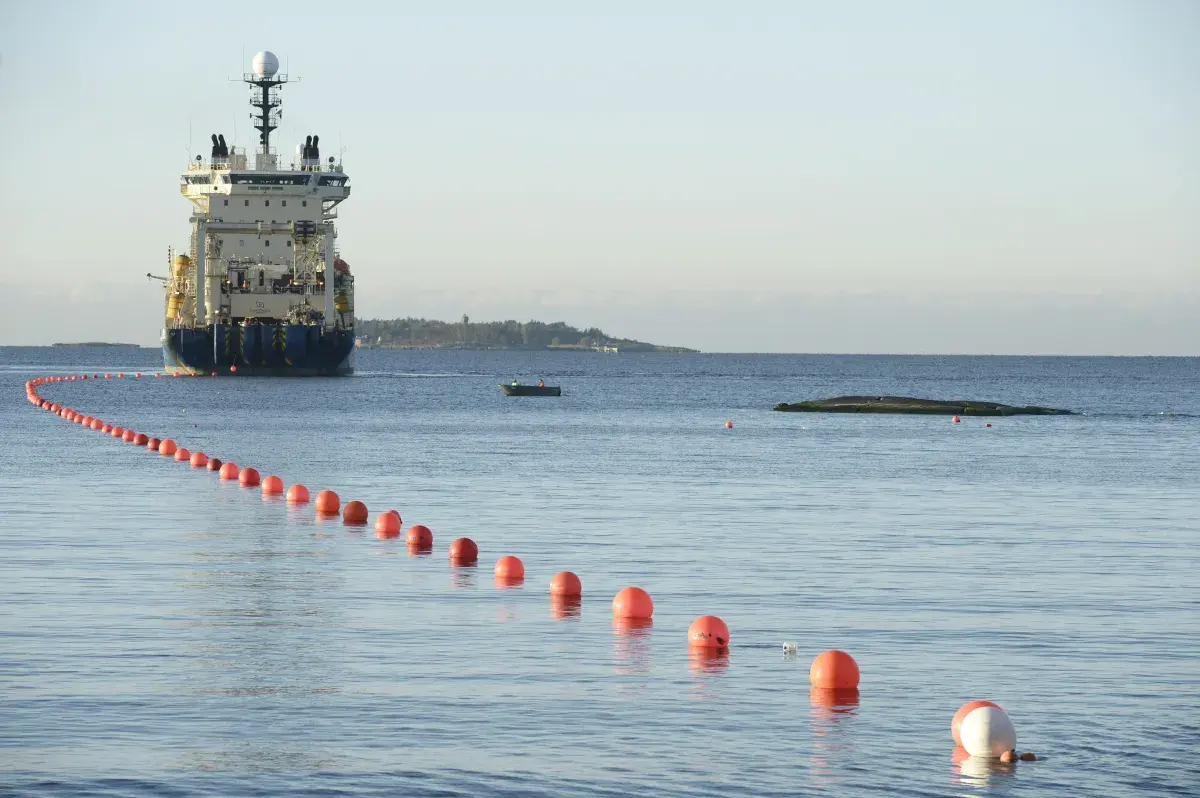
A Finnish newspaper has reported growing security concerns in the country over the Chinese ownership of a firm that operates underwater data cables in the Baltic Sea.
Helsingin Sanomat reported that there was increased scrutiny over the Chinese state-owned firm Citic Telecom CPC, through its subsidiaries, owning the three telecommunications cables linking Finland, Estonia, and Sweden.
Although there are no allegations of wrongdoing by the firm, the head of Finland’s National Cyber Security Centre told the paper that Beijing’s link was of concern because whoever controlled the cable had access to its data traffic.
Sari Arho Havrén, senior adviser for Business Finland, told Newsweek that as the cables are critical infrastructure, their control by China “is indeed problematic.”
Newsweek reached out to CITIC Telecom CPC for comment.
Why It Matters
Finland, the European Union, and the United States have recently raised concerns about Beijing’s links to data cables, citing worries about national security, data integrity, and geopolitical stability over this vital infrastructure for NATO countries.
What To Know
The story by Helsingin Sanomat outlines how Citic Telecom CPC company, through its subsidiaries, owns and operates three Baltic Sea cables that carry information from private individuals, companies, and authorities.
A map by Newsweek illustrates the extent of this network, which comprises three separate routes: one between Finland and Estonia, a second between Finland and Sweden, and a third between Estonia and Sweden.
Citic Telecom CPC is headquartered in Hong Kong, but its parent company, Citic Group, is owned by the Chinese state and operates under the supervision of China’s Ministry of Finance, playing a key role in China’s Digital Silk Road initiative. This initiative is expanding Chinese tech infrastructure globally.
The three cables in the Baltic Sea are managed by Citic Telecom CPC’s subsidiary in Tallinn, according to Helsingin Sanomat, which quoted the company as saying that it operates under EU regulation and fully complies with local laws and regulations.
There was little attention when it acquired the data cables from the Dutch company Linx in 2019, but growing concerns have since emerged over Beijing’s more assertive foreign policy and increased role in the internet cable network.
In Estonia, Citic’s subsidiary provides services to the Defence Forces, Ministry of Education and Research, and Narva City Administration, the paper said.
Traficom, the Finnish communications agency, has not detected any misuse related to Citic Telecom CPC’s data cables in the Baltic Sea.
However, Anssi Kärkkäinen, Director General of the National Cyber Security Centre Finland (NCSC-FI) told the outlet that ownership of data cables always involves a risk and as critical infrastructure, whoever controls them has access to their data traffic.
In recent months, the authorities of Finland, the European Union and the United States have raised concerns about data cables owned by Chinese companies.
In 2022, the U.S. banned one of the Citic Group’s telecommunications companies from operating in the country, and the European Parliament raised the issue of trade in its resolution on China’s cyber threat.
Sari Arho Havrén, who is also an associate fellow at the Royal United Services Institute (RUSI) told Newsweek Thursday that following accusations of cables being cut and China’s backing for Russia and its war against Ukraine “these hidden risks are attracting more attention.”
China’s increasing influence over the internet cable network and the potential threats to modern societies and their reliance on these networks are becoming more evident and critical infrastructure; its control by Beijing was problematic, she said.
What People Are Saying
Anssi Kärkkäinen, Director General of the National Cyber Security Centre Finland (NCSC-FI), told Helsingin Sanomat: “From our point of view, all submarine cables are critical infrastructure…whoever controls the cable has access to the data traffic on it, if they so wish.”
RUSI Associate Fellow Sari Arho Havrén told Newsweek: “These cables are critical infrastructure, and their control by China is indeed problematic.”
What Happens Next
The Chinese firm is not accused of wrongdoing, but scrutiny is likely to remain over China’s Digital Silk Road Initiative. Reuters reported in July that the U.S. plans for new regulations that would more extensively ban the use of Chinese technology in data cables and limit the granting of new licenses to Chinese cable companies.



